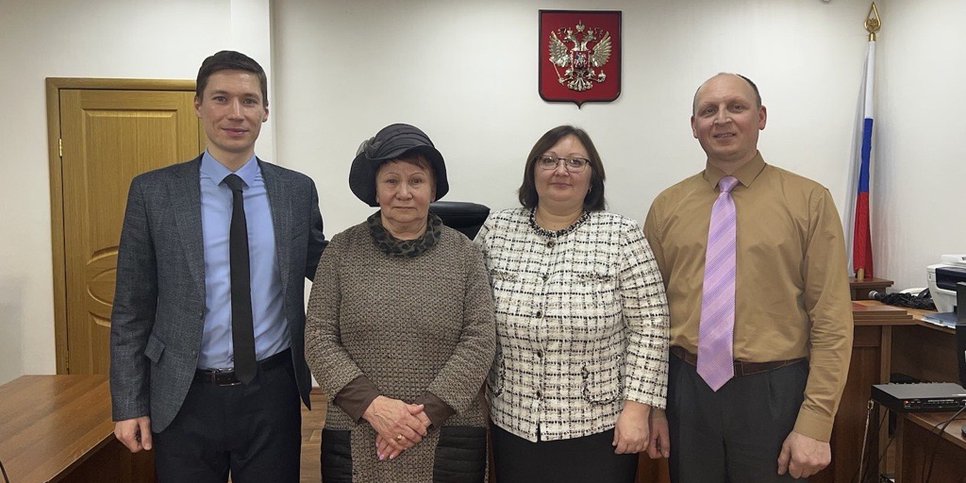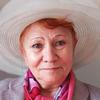The Bazhenovs and Vera Zolotova together with a lawyer in the courtroom. 31 January 2023
The Bazhenovs and Vera Zolotova together with a lawyer in the courtroom. 31 January 2023
A Suspended Sentence Instead of an Acquittal. As a Result of the Third Appeal, Believers From Kamchatka Were Found Guilty of Extremism
Kamchatka TerritoryOn January 31, 2023, the Kamchatka Territorial Court for the third time considered the case of the Bazhenovs, a married couple, and pensioner Vera Zolotova, who were previously acquitted, and found them guilty of extremism, imposing a suspended sentence of two years.
All three are residents of Yelizovo, a town in Kamchatka with a population of just over 36,000. The Bazhenovs are a friendly and social couple who are teachers with a close-knit family. Vera Zolotova is a 77-year-old pensioner, who has lived in her hometown all her life and has earned a reputation as a law-abiding person. Each of them has been practicing the religion of Jehovah's Witnesses for more than fifteen years. Like other representatives of this religion, who live in hundreds of other countries, they went to meetings with other believers, read and discussed the Bible, and sang religious songs. It was this activity, and not any actual crimes, that became the reason for their criminal prosecution, which has been going on for more than four years.
During this time, the case of these believers has been at many stages: at first it was returned to the prosecutor's office due to shortcomings on the part of the prosecution; later it reached a verdict—the court found the believers guilty and gave them two-year suspended sentences. The appellate court recognized the verdict as fair, but the subsequent cassation court overturned it and sent the case back to the stage of appeal. In January 2022, the Kamchatka Territorial Court acquitted the believers. The Court of Cassation upheld this decision, but the prosecutor's office appealed to the Supreme Court of Russia, which overturned the acquittal on December 2022 and sent the case back to the appeal stage.
Snezhana Bazhenova, recalling years of litigation, noted: “In court, it became clear that the charges against us were fabricated. For example, when the testimony of an elderly woman, a witness for the prosecution [who had discussed the Bible with Jehovah's Witnesses], was read out, she could not help but shout out the whole time: 'You've misinterpreted everything! That's a lie!' And the judge saw and heard that the prosecution's witness never really said that. Moreover, when asked if she knew us, she said: “No, I don’t know them at all.” Snezhana assessed her unjust persecution as follows: “This is the usual course of a Christian; many Christians before me have endured it with dignity.”
Reflecting on the possibility of ending up in a penal colony, Konstantin Bazhenov said that it would cause serious hardship for his family but added: "We are among our dear friends, and my family will definitely be taken care of."
The believers still consider themselves innocent. It should be noted that according to the clarifications of the Plenum of the Supreme Court of Russia, the religious activity of Jehovah's Witnesses in itself does not constitute corpus delicti. In June 2022, the European Court of Human Rights fully acquitted Jehovah's Witnesses in Russia, pointing to "indications of a policy of intolerance by the Russian authorities . . . designed to cause Jehovah's Witnesses to abandon their faith and to prevent others from joining it" (§ 254).



